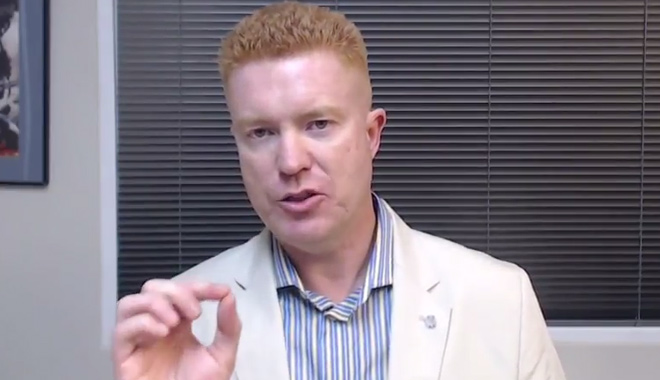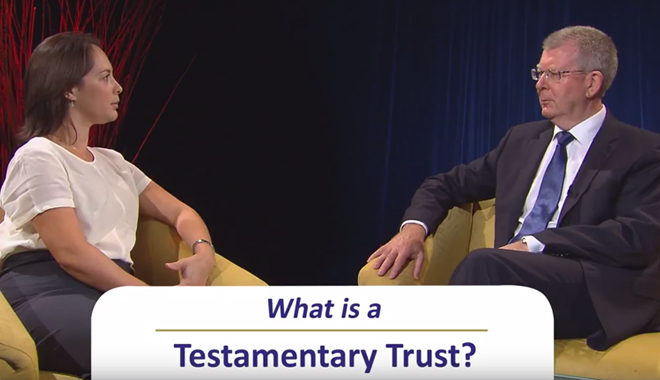Bequeath assets to a trust instead of straight to beneficiaries. Created under your will, a testamentary trust gives the appointed trustee full discretion over who benefits and to what extent.
Sometimes a will isn’t enough to protect loved ones upon your passing, especially if there are complicated finances, tax considerations, or other risks involved.
A testamentary trust can help secure and share assets in a way that works best for your family. It offers a flexible, tax-efficient structure for distributing income and gains while safeguarding against creditors and supporting beneficiaries who need help managing their inheritance.
For over 55 years, Turnbull Hill Lawyers has been helping clients across Newcastle, Maitland, Lake Macquarie, Sydney and the Central Coast to leave lasting legacies. Our solicitors can determine whether a testamentary trust is more suitable for beneficiaries than a direct distribution through your will. Whether you need to create or contest this estate planning tool, we’re here to guide you.

Creditor protection
A testamentary trust can help shield a beneficiary’s inheritance from creditors. For instance, if a beneficiary inherits through such a trust and later incurs debt – perhaps by falling behind on car loan repayments – their inheritance might remain secure.
With the right trust structure in place, creditors may be unable to claim the assets held within the trust, ensuring the wealth stays protected despite any financial challenges faced by the beneficiary.

Income splitting
A testamentary trust gives your beneficiary the flexibility to share the income generated by trust assets among other beneficiaries.
For example, the trust’s beneficiaries may include your beneficiary’s spouse and children. This trust income may be allocated to children, helping cover expenses like school fees.
Unlike income from other types of trusts, income distributed to minors from a testamentary trust is not taxed at the highest marginal rate, offering significant tax advantages.
These tax concessions extend beyond the income and capital gains from inherited assets. They also apply to earnings and gains from assets acquired using funds reinvested from the original inheritance, making testamentary trusts a smart choice for long-term financial planning.

High-risk beneficiaries
A carefully designed testamentary trust can safeguard inherited wealth and assets for high-risk beneficiaries. By tailoring the trust to their unique circumstances, you can protect their inheritance from being lost or mismanaged.
High-risk beneficiaries might include individuals facing financial difficulties, a relationship breakdown, bankruptcy, gambling issues, or substance dependencies. It could also encompass those in professions with a high likelihood of legal disputes, such as those who may face lawsuits from clients or customers.

Dependents with special needs
Creating a well-structured testamentary trust that considers your child’s unique circumstances can provide you with peace of mind. This type of trust ensures that children with disabilities or special needs receive the ongoing care and financial support they require.
Trusted with testamentary trusts since 1969
Experienced lawyers
Navigating the complexities of a trust can feel overwhelming, but you don’t have to do it alone. For over half a century, our experienced solicitors have helped individuals create tailored testamentary trusts to protect their family’s future and fulfil their final wishes.
Proactive support
We understand that timely action is often critical. That’s why our team works efficiently to address your needs, providing quick and effective solutions so you can focus on what matters most – your loved ones and their financial security.
Tailored advice
No two families are the same, and neither are their needs. We take the time to understand your unique circumstances, relationship dynamics, and goals, delivering bespoke legal advice to help you establish an effective testamentary trust.
Informed decisions
We believe in clear and practical communication, helping you understand your options and the potential outcomes. With our professional guidance, you’ll feel confident making informed decisions to protect your assets and provide for your beneficiaries.
Trusted by thousands
Families have relied on us to handle their most significant legal matters for decades. As a trusted firm for testamentary trusts in NSW, we’re committed to helping you achieve positive outcomes with compassion and expertise.
Transparent fees
We ensure you know exactly what to expect by providing a transparent and tailored cost estimate from the start. Create a testamentary trust with lasting benefits and no hidden expenses.
Plan today for peace of mind tomorrow
Our estate planning lawyers in Newcastle, Maitland, Lake Macquarie, Sydney and the Central Coast can help you establish a valid trust with complete confidence.
Related services
What our clients say
They looked after me quite well I was quite pleased with their service.
Patrick Huolohan assisted in updating my estate planning with what was a very quick, simple and efficient process. Patrick was both professional and easy-going which ensured an anxiety-free experience. A modest investment to get the job done right and provide the family with certainty.
I recently engaged Warwick Gilbertson of Turnbull Hill Lawyers to prepare my Will and Testamentary Trust. I was very satisfied with the professional service I received and also the attention to detail which was beyond reproach.
Warwick Gilbertson is an absolute professional in all he does. He is a wonderful man of competence and integrity and a warm and thoughtful human being. I have recommended Warwick to friends. Thanks.
Dear Rani Gandha. I received copies of my Will in the post and I would like to thank you so very much for getting this done for me. My appreciation to you and your staff for giving your time to me and for helping The Salvation Army in this way. God bless you!
Get started in 3 simple steps
If you need help, get in touch with our trust lawyers. We will give your case the care it deserves.
Book a consultation
Call our friendly team on 1800 994 279 or contact us today.
Tell us your story
Your lawyer will listen carefully to your needs and guide you with indispensable legal advice.
Receive the right support
Receive tailored support at every stage of setting up a testamentary trust, whatever your circumstances.
Frequently Asked Questions
A testamentary trust is a discretionary estate planning tool established by a will that takes effect after the testator’s death. Its primary purpose is to hold and manage some or all of the deceased’s assets and distribute them to beneficiaries according to the instructions laid out in the will.
Upon the death of the testator, their assets are transferred to a nominated trustee, who manages them on behalf of the beneficiaries. These beneficiaries may receive income, capital, or both, depending on the terms set out in the trust deed.
Most testamentary trusts are discretionary, meaning the trustee has the flexibility to decide how and when to distribute income or capital to beneficiaries or other related individuals. However, the trustee is legally obligated to act in the best interests of the beneficiaries and adhere to the instructions in the trust deed.
This type of trust can remain active for a specific timeframe or until the death of the last beneficiary.
A will is a legal document where the testator (the person creating the will) outlines how their assets should be distributed after their passing. It specifies the beneficiaries who will receive the assets and appoints an executor to manage the process, ensuring the estate is properly distributed according to the will's instructions.
A testamentary trust, on the other hand, is a legal structure created within a will to hold and manage assets. Unlike a straightforward distribution through a will, the assets in a testamentary trust are not immediately handed over to the beneficiaries. Instead, a trustee manages and distributes the assets over time based on the specific instructions in the trust.
A testamentary trust offers a wealth of benefits to testators and their beneficiaries, including:
Tax efficiencies
Enjoy significant tax advantages through income splitting. By distributing income to beneficiaries in lower tax brackets, the overall tax burden on the estate’s income can be significantly reduced, increasing financial benefits for your loved ones.
Greater control
Retain control over how your assets are managed and distributed after your passing. You can include specific instructions, such as provisions for the ongoing care of dependent family members, ensuring your wishes are carried out exactly as intended.
Asset protection
Add a layer of protection for inherited assets, shielding them from external risks such as creditors, bankruptcy, divorce, or other challenges your beneficiaries might face.
Flexibility
Customise terms to suit the unique circumstances of your family and beneficiaries, ensuring the trust meets their needs now and in the future.
You can appoint anyone as a trustee, including the beneficiary, the executor of your will, your spouse, a trusted family member, or a close friend. However, it’s essential to select someone who will responsibly and accurately follow the instructions outlined in your Trust.
The trustee’s role is to act in the best interests of your beneficiaries, so it’s crucial to choose someone you trust completely and who is capable of managing this responsibility effectively.
Take the time to ensure your choice aligns with your wishes and provides peace of mind for your loved ones.
Beneficiaries of a testamentary trust can be anyone the Testator chooses, including those named in the will.
They can be used to support children under 18 or 21, ensuring inheritance is managed wisely until they are mature enough to handle it independently, or to manage the trust themselves as trustee.
These trusts can also be designed to provide financial support for elderly or disabled individuals who are unable to manage their affairs, offering security and care.
Ultimately, all beneficiaries of a testamentary trust share two key characteristics:
- The trustee distributes funds specifically for their needs, such as living expenses, education, or other defined purposes.
- Funds are allocated solely for the uses outlined in the trust, ensuring they are managed according to the testator’s intentions.
A testamentary trust can hold a wide variety of assets, including:
- Real estate: Such as a family home, rental properties, or undeveloped land.
- Cash: Lump sums or savings intended for distribution or management within the trust.
- Investments: This includes shares, bonds, retirement accounts, or other financial investments.
- Personal belongings: Including jewellery, artwork, furniture, or other personal belongings designated for specific beneficiaries.
These assets are managed by the trustee according to the terms outlined in the will, ensuring they are distributed or used as intended.
Setting up a testamentary trust tends to involve the following key steps:
- Engage an estate planning lawyer to draft a will that includes provisions for the trust. Obtaining professional legal advice ensures your trust is properly structured and meets all legal requirements, so it can run smoothly after your passing.
- Appoint someone you trust as a trustee to manage the trust’s assets responsibly.
- Decide who will benefit from the trust, whether through income, capital, or both.
- Define the trust terms for managing and distributing assets, including the trustee’s responsibilities and beneficiaries’ rights.
- Sign the will in front of independent witnesses who are not beneficiaries of the trust.
Yes. There is no legal limit to how many testamentary trusts a will can establish. Ideally, a will would establish a separate trust for each beneficiary.
Yes, a testamentary trust can be contested since it is created through a will. The Supreme Court has the authority to reclaim assets allocated to the trust for redistribution among beneficiaries and claimants if a valid challenge arises.
Challenges to a testamentary trust generally occur through family provision claims under the Succession Act 2006 (NSW). These claims allow eligible individuals to dispute the distribution of an estate if they feel they have not received adequate or fair provisions in the will.
The cost of setting up a testamentary trust depends on your circumstances and legal requirements. At Turnbull Hill Lawyers, we offer a free initial phone consultation to discuss your situation, providing a clear, tailored estimate of legal fees.
Note that since a testamentary trust is established through your will, it only takes effect after your passing.

















































































 Liability limited by a scheme approved under Professional Standards Legislation
Liability limited by a scheme approved under Professional Standards Legislation